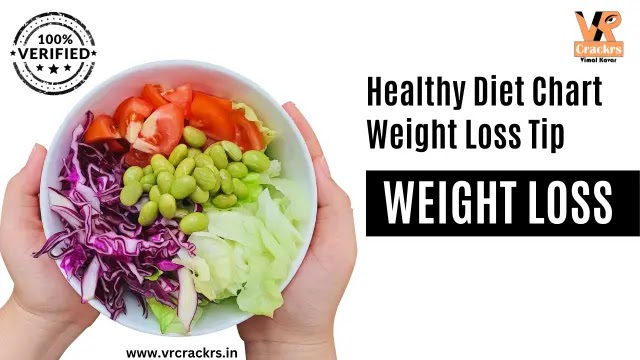Nature has hidden the most precious vegetables in the soil: tubers are a treasure of nutrition, boost immunity, and ward off many diseases.
Over the years it has been the custom that the most valuable things are kept in the safest place.
All this we have learned not by ourselves, but from nature itself. We see mountains, rivers, seas, everything in front, while all the metals and minerals are protected within the soil and mountains.
Similarly on earth there are trees, plants, fruits, vegetables. While root vegetables remain underground. Nature has given this vegetable the safest place. The reason behind doing so is the nutritional value, health benefits and medicinal properties of this particular vegetable.
Exploring the World of Root Vegetables: A Dive into Their Nutritional Riches
Today in 'Health Water' we will talk about this root vegetable. You will also know that:
- What are the benefits of eating which root vegetables?
- What nutrients does it contain?
- How can we use it in food?
Turmeric: Ancient Spice with Modern Wonders
Turmeric has been a part of our diet since ancient times, but we hardly know its benefits. Let's understand this graphically-
Onion: The Humble Bulb with Powerful Benefits
Onion is the most commonly used root vegetable. It is mostly used in cooking vegetables.
- Nutritional Content: Onions are rich in fiber, vitamin C and antioxidants.
Benefits of eating onions:
- According to a study published in the National Library of Medicine, eating 100 grams of raw onion daily can control the blood sugar levels of type 2 diabetics.
- According to the National Institutes of Health, onions have powerful anti-cancer properties. Antioxidants in it reduce the risk of cancer.
How to Eat: Can be eaten mixed with all vegetables. Can be eaten with salad, soup, eggs and rice. Can also be eaten raw.
Sweet Potatoes: The Nutrient-packed Delight
Sweet potatoes are one of the tastiest vegetables. It is equally nutritious.
- Nutritional Content: Sweet potatoes are also rich in fiber, vitamin C, manganese and other vitamins. It also contains many antioxidants including beta-carotene, chlorogenic acid and anthocyanin.
Benefits of Eating Sweet Potatoes:
- According to a study published in Science Direct, consuming 4 grams of white sweet potato extract daily for 12 weeks can control blood sugar levels in diabetic patients.
- According to a study published in the National Library of Medicine, the high vitamin A content in sweet potatoes can strengthen our immune system, which also maintains eyesight and skin health.
How to eat: Sweet potatoes can be eaten boiled or roasted. You can eat it as a sandwich. You can mix it in salad or fry it and eat it without adding anything.
Ginger: The Zesty Root with Healing Powers
Ginger is a Chinese plant. It is from the turmeric family.
- Nutritional Content: Ginger is rich in antioxidants. It also contains a special compound called gingerol, which has many health benefits.
Benefits of eating ginger:
- According to the National Institutes of Health, eating ginger can help with nausea in pregnant women.
- Ginger relieves pain and inflammation. According to a study published in the National Library of Medicine, ginger extract also relieves period pain and may also relieve osteoarthritis.
How to eat: Ginger can be added to teas, soups and smoothies. It can also be added to vegetables for a special taste.
Beet: The Ruby Red Powerhouse of Nutrition
Beetroot is the most nutritious root. It is rich in fiber, folate and manganese.
- Nutritional Content: Beets are rich in nitrates. These are beneficial plant compounds, which relax the blood vessels.
Benefits of eating beets:
- According to a study published in the National Library of Medicine, eating beets improves physical activity. This also improves blood flow to the brain, which is good for mental health.
- Beet extract has anti-cancer properties. If someone already has cancer, it can slow down its growth.
How to eat: You can make beet juice, pickle. It can be eaten boiled or roasted.
Read More: Healthy Food Hacks 2024 to Maximize Your Energy Levels
Garlic: The Pungent Bulb with Numerous Health Perks
Garlic is a root vegetable in the onion family of vegetables.
- Nutritional Content: Garlic is rich in manganese, vitamin B-6 and vitamin C. It contains many more nutrients.
Benefits of Garlic:
- Many medicinal properties of garlic have been described in Ayurveda. The special compound allicin present in it makes it beneficial.
- According to a study published in the National Library of Medicine, eating garlic keeps blood pressure, cholesterol and triglycerides under control. It also improves heart health.
How to eat: We can eat garlic by mixing it in soup, chutney or any dish.
Radish: The Crisp and Refreshing Root
If we have radishes in the form of salad in our food plate, its taste increases. It also contains many nutrients.
- Nutritional Content: Radishes are low in carbohydrates and calories, while high in fiber and vitamin C.
Benefits of eating Radish:
- Antifungal properties of radish have. By eating this we will be protected from all types of fungal infections.
- According to a study published in the National Library of Medicine, eating radish leaves heals stomach ulcers faster.
How to eat: You can add radish to make meals or snacks tasty. Can also be added to slices, sandwiches or salads.
Carrot: The Crunchy, Orange Superfood
Carrot is one of the most widely used tuberous roots. It also contains the most nutrients.
- Nutritional Content: Carrots contain vitamin A and vitamin K. It also contains the powerful antioxidant beta-carotene.
Benefits of eating carrots:
- Eating carrots reduces oxidative stress and improves cholesterol levels.
- According to a study published in the National Institute of Medicine, the beta-carotene present in carrots reduces the risk of breast cancer, prostate cancer and stomach cancer.
How to eat: Eating raw carrots is most beneficial. It can also be cooked and eaten. Can make vegetables and pudding.
Conclusion
Root vegetables are not just humble foods. They are powerhouses of nutrition and offer numerous health benefits. Incorporating these vegetables into your diet can lead to a healthier and more vibrant life. So, don't underestimate the power of what lies beneath the ground!
I have written this article from Divya Bhaskar Gujarati application post.















thank you for visit my website VRCrackrs,
I'll answer your comment as soon as possible.